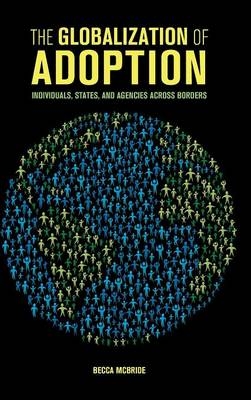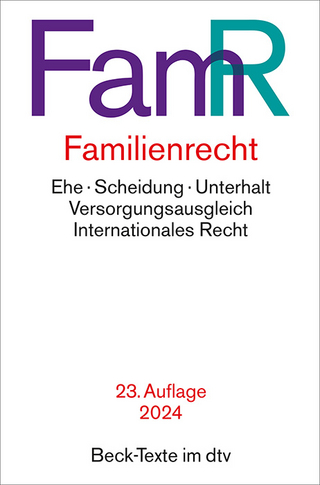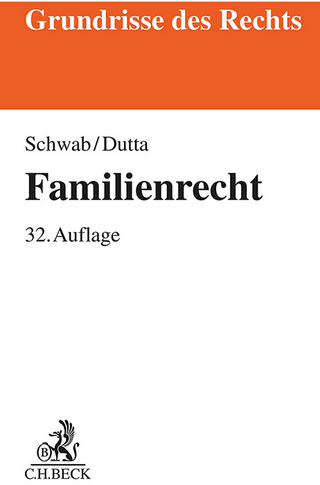
The Globalization of Adoption
Cambridge University Press (Verlag)
978-1-107-14963-2 (ISBN)
This book expands our understanding of a growing, yet largely unstudied phenomenon: the flow of children across borders through intercountry adoption. What explains the spread of intercountry adoption through the international system over time? McBride investigates the interconnected networks of states, individuals, and adoption agencies that have collaborated to develop the practice of intercountry adoption we see today. This book tells the story of how adoption agencies mediate between individuals and states in two ways: first by teaching states about intercountry adoption as a policy, and second by helping states implement intercountry adoption as a practice. McBride argues that this process of states learning about intercountry adoption from adoption agencies has facilitated the global development of the practice in the past seventy years.
Becca McBride is Assistant Professor of Political Science and International Relations at Calvin College, Michigan, where she teaches courses on international relations and comparative politics. She holds a Ph.D. from Vanderbilt University, Tennessee in International Relations and an M.A. from Georgetown University, Washington DC in Russian and East European Affairs; she is currently working on a M.Ed. in Curriculum and Instruction. Her research focuses on processes of diffusion, human rights and children in the international system, intercountry adoption, and more effective pedagogy for teaching across cultures. Before entering academia, she worked for the US government as a Russian political and leadership analyst.
1. The globalization of intercountry adoption; 1.1 A puzzling trend; 1.2 The argument in brief: diffusion through state learning; 1.2.1 Existing explanations; 1.3 Why should there be a political study on intercountry adoption?; 1.4 Roadmap; 2. The policies and practices of intercountry adoption; 2.1 Overlapping legal systems; 2.1.1 The legal and political system of adopting states; 2.1.2 Legal and political systems of states with vulnerable children; 2.1.3 The international legal framework for coordinating adoptions; 2.2 Conclusion; 3. A theory of the diffusion of intercountry adoption; 3.1 Main themes; 3.2 Why allow intercountry adoption? Potential answers from cooperation literature; 3.3 Theoretical framework, part 1: diffusion through learning; 3.3.1 Adoption agencies as agents of state learning; 3.3.2 The learning process for states with vulnerable children; 3.3.3 The learning process for adopting states; 3.4 Theoretical framework, part 2: domestic characteristics and state choices; 3.4.1 Domestic characteristics and receptivity to intercountry adoption; 3.4.2 Domestic characteristics and intercountry adoption partnerships; 4. Data to investigate global trends in intercountry adoption; 4.1 Data on patterns in states' decision to allow foreign adoption of children; 4.1.1 Does the state 'allow' intercountry adoption?; 4.1.2 When did the state move from a 'no' to a 'yes'?; 4.2 Data on how adopting states choose partners for intercountry adoption; 4.2.1 States' commitment to the HCICA; 4.2.2 Partner choice for intercountry adoption; 4.2.3 Conclusion; 5. Why do states allow foreign adoption?; 5.1 Methods and the model; 5.1.1 Modeling challenges; 5.2 Are states' choices to allow intercountry adoption interdependent?; 5.2.1 Is intercountry adoption a domestic political process?; 5.2.2 How do domestic characteristics shape the state's decision?; 5.3 Conclusion; 6. How do states choose partners for intercountry adoption?; 6.1 Is the Hague Convention an effective source of information?; 6.2 The model; 6.3 Findings; 6.4 Discussion; 7. The future of intercountry adoption; 7.1 A happy ending?; 7.2 A recap of the argument; 7.3 Implications; 7.4 Conclusion; Bibliography; Appendix 1. State by state sources for dependent variable; Appendix 2. SAOM model information and justification.
| Erscheinungsdatum | 20.07.2016 |
|---|---|
| Verlagsort | Cambridge |
| Sprache | englisch |
| Maße | 160 x 235 mm |
| Gewicht | 490 g |
| Themenwelt | Recht / Steuern ► EU / Internationales Recht |
| Recht / Steuern ► Privatrecht / Bürgerliches Recht ► Familienrecht | |
| Sozialwissenschaften ► Pädagogik ► Sozialpädagogik | |
| Sozialwissenschaften ► Soziologie | |
| ISBN-10 | 1-107-14963-0 / 1107149630 |
| ISBN-13 | 978-1-107-14963-2 / 9781107149632 |
| Zustand | Neuware |
| Informationen gemäß Produktsicherheitsverordnung (GPSR) | |
| Haben Sie eine Frage zum Produkt? |
aus dem Bereich


